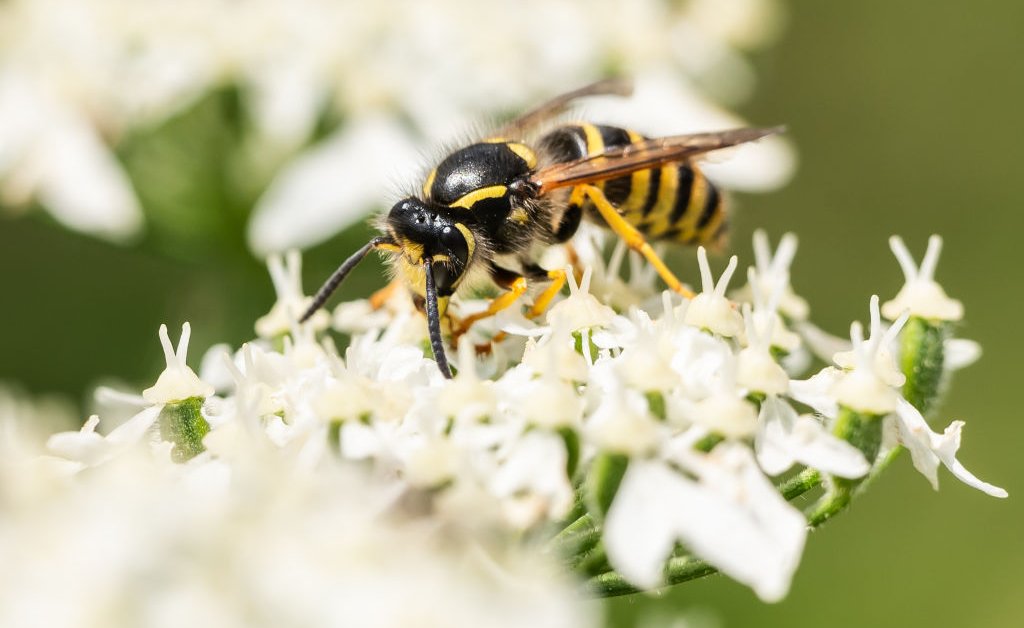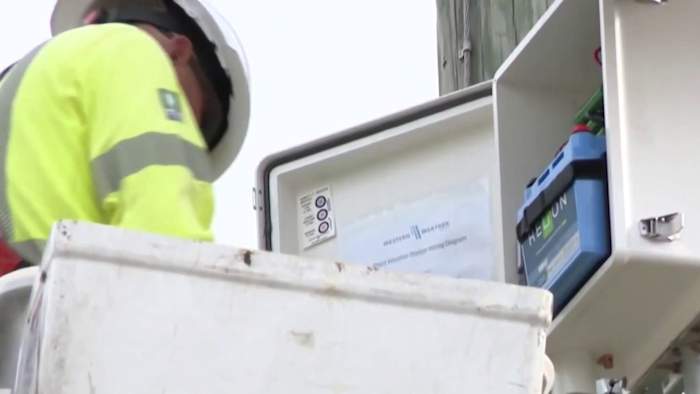Rising Temperatures, Shifting Habitats: Climate Change's Impact On Summer Insects

Welcome to your ultimate source for breaking news, trending updates, and in-depth stories from around the world. Whether it's politics, technology, entertainment, sports, or lifestyle, we bring you real-time updates that keep you informed and ahead of the curve.
Our team works tirelessly to ensure you never miss a moment. From the latest developments in global events to the most talked-about topics on social media, our news platform is designed to deliver accurate and timely information, all in one place.
Stay in the know and join thousands of readers who trust us for reliable, up-to-date content. Explore our expertly curated articles and dive deeper into the stories that matter to you. Visit Best Website now and be part of the conversation. Don't miss out on the headlines that shape our world!
Table of Contents
Rising Temperatures, Shifting Habitats: Climate Change's Impact on Summer Insects
Summer's vibrant buzz is changing. The chirping crickets, buzzing bees, and fluttering butterflies we associate with warm weather are facing unprecedented challenges due to climate change. Rising temperatures and shifting habitats are dramatically impacting insect populations, with cascading effects on ecosystems and human society. This isn't just about a few less butterflies; it's a critical issue demanding our attention.
A Warming World, a Changing Insect Landscape
Climate change is altering the delicate balance of nature at an alarming rate. For insects, this translates to several key impacts:
-
Range Shifts: As temperatures rise, many insect species are migrating to higher altitudes or latitudes in search of cooler climates. This can lead to competition with existing species and disrupt established ecosystems. For example, the range of the mountain pine beetle, a devastating forest pest, is expanding due to milder winters, causing widespread tree mortality.
-
Phenological Mismatches: The timing of life cycle events, like insect emergence and plant flowering, is shifting. This can lead to "phenological mismatches," where insects emerge before their food sources are available or pollinators miss the peak flowering period of their host plants. This is particularly problematic for specialist insects with narrow dietary requirements.
-
Increased Mortality: Extreme heat events can directly kill insects, especially those with limited tolerance for high temperatures. This is exacerbated by factors like habitat loss and fragmentation, which reduce the availability of suitable refuge areas.
-
Altered Species Interactions: Climate change is influencing the complex relationships between insects and other organisms. For instance, changes in insect populations can affect the availability of food for birds, reptiles, and other animals that rely on them as a primary food source. This disruption can have significant impacts throughout the food web.
Beyond the Buzz: The Broader Implications
The decline of insect populations isn't just an ecological concern; it has significant implications for human society:
-
Food Security: Many crops rely on insect pollination, particularly bees. A decline in bee populations poses a significant threat to global food production and could lead to increased food prices and shortages. Learn more about the vital role of pollinators in . (Replace with a relevant link)
-
Ecosystem Services: Insects play crucial roles in nutrient cycling, decomposition, and soil health. Their decline can disrupt these essential ecosystem services, impacting the overall health and productivity of our ecosystems.
-
Disease Transmission: Some insects act as vectors for diseases, carrying pathogens that can affect humans, livestock, and wildlife. Changes in insect distribution and abundance can influence the spread of these diseases.
What Can We Do?
Addressing the impacts of climate change on insects requires a multifaceted approach:
-
Reduce Greenhouse Gas Emissions: This is the most crucial step. Transitioning to renewable energy sources, improving energy efficiency, and adopting sustainable transportation are all vital.
-
Protect and Restore Habitats: Creating and maintaining diverse habitats provides insects with refuges and resources to adapt to changing conditions. This includes supporting initiatives to conserve wetlands, forests, and grasslands.
-
Support Sustainable Agriculture: Practices like reduced pesticide use, crop diversification, and integrated pest management can help create more resilient agricultural systems that support insect populations.
The decline of summer insects is a stark warning about the consequences of climate change. By understanding the impacts and taking proactive steps, we can strive to protect these vital creatures and the ecosystems they support, ensuring a vibrant and buzzing future for generations to come. Learn more about climate change initiatives in your area by contacting your local environmental agency.

Thank you for visiting our website, your trusted source for the latest updates and in-depth coverage on Rising Temperatures, Shifting Habitats: Climate Change's Impact On Summer Insects. We're committed to keeping you informed with timely and accurate information to meet your curiosity and needs.
If you have any questions, suggestions, or feedback, we'd love to hear from you. Your insights are valuable to us and help us improve to serve you better. Feel free to reach out through our contact page.
Don't forget to bookmark our website and check back regularly for the latest headlines and trending topics. See you next time, and thank you for being part of our growing community!
Featured Posts
-
 Has Lauren Sanchez Had Plastic Surgery Fans Weigh In
May 28, 2025
Has Lauren Sanchez Had Plastic Surgery Fans Weigh In
May 28, 2025 -
 Climate Change Brazils Finance Chief Spotlights Economic Potential
May 28, 2025
Climate Change Brazils Finance Chief Spotlights Economic Potential
May 28, 2025 -
 Major Power Outage Hits 165 000 Amid Overnight Storm
May 28, 2025
Major Power Outage Hits 165 000 Amid Overnight Storm
May 28, 2025 -
 Rising Temperatures Shifting Habitats Climate Changes Impact On Summer Insects
May 28, 2025
Rising Temperatures Shifting Habitats Climate Changes Impact On Summer Insects
May 28, 2025 -
 Forecasting Ubers Growth 24 Analyst Opinions And Their Implications
May 28, 2025
Forecasting Ubers Growth 24 Analyst Opinions And Their Implications
May 28, 2025
